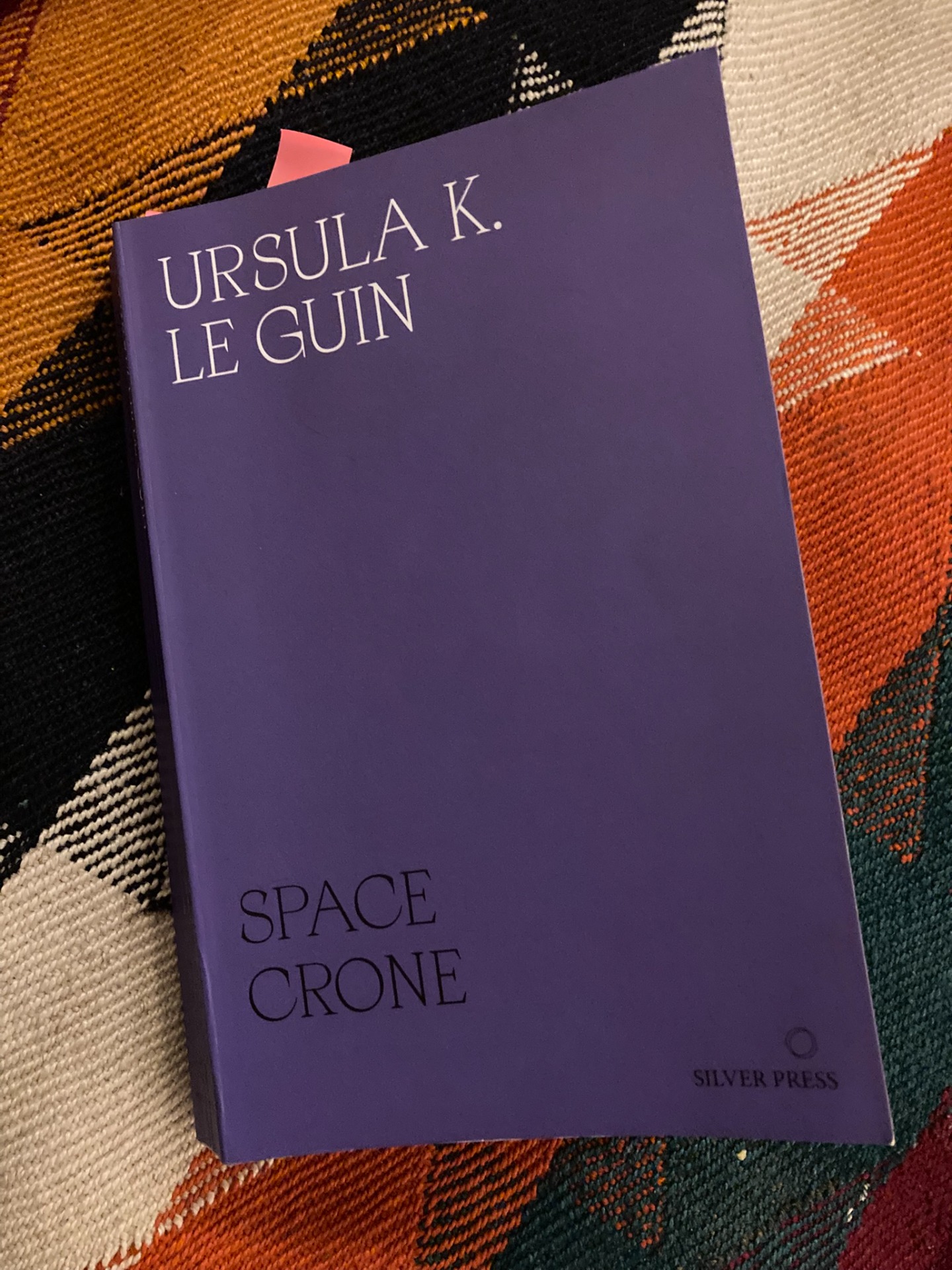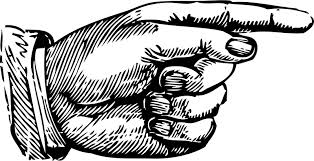Ursula K. Le Guin

Ursula K. Le Guin
"Space Crone" (Kosmiczna Wiedzma)
Książkę Ursuli Le Guin czytałam z wielką przyjemnością. Miałam wrażenie, że siedzę obok starszej, piekielnie mądrej kobiety i słucham jej opowieści o życiu – chwilami trudnej, ale opowiadanej z humorem i czułością. W jej esejach słychać głos kogoś, kto przeżył wiele, a jeszcze więcej zrozumiał. To głos kosmicznej wiedźmy, która widzi dalej niż inni i uczy, że literatura może być formą myślenia – nie po to, by udzielać odpowiedzi, lecz by stawiać pytania.
W jednym z esejów poświęconych swojej książce Left Hand of Darkness Le Guin pisała, że stworzony przez nią świat był eksperymentem myślowym – podobnym do tych, które prowadzili Einstein czy Schrödinger w swoich rozważaniach o ruchomej windzie czy pudełku z kotem. Sprawdzała świat, w którym możliwe byłoby jej słynne zdanie – Król był w ciąży.
Wyeliminowałam płeć, żeby sprawdzić, co pozostanie. Tym, co pozostało, był po prostu człowiek – przestrzeń wspólna kobiecie i mężczyźnie. To właśnie ta przestrzeń, ten "wspólny człowiek", stanowi centrum jej myślenia o świecie.
Le Guin często odwracała utarte wyobrażenia. W jej wizji to nie młody, pewny siebie mężczyzna ani ambitna dziewczyna wyruszyliby w kosmiczną podróż w imieniu ludzkości, lecz starsza kobieta, która wychowywała dzieci, troszczyła się o dom, martwiła o wnuki. Taka, która na propozycję reprezentowania Ziemi odpowiedziałaby ze zdziwieniem: Ja? Ale ja nic szczególnego nie zrobiłam. A jednak – właśnie ona, ze swoją codzienną mądrością i doświadczeniem, byłaby najlepszą wysłanniczką.
Bo życie kobiety, jak pokazuje Le Guin, to nieustanny ciąg zmian, przybierania nowych ról i przeobrażeń, widocznych także na poziomie ciała. A zmiana – mówi – jest podstawą naszej egzystencji.
Temat codzienności powraca w jej esejach.
Le Guin pisze jak często lekceważone doświadczenie kobiet staje się w istocie sztuką życia - sztuką prowadzenia domu:
Chcę nadać słowu sztuka nową wartość, tak by mówiąc o słowach, mówić w kontekście wielkich sztuk życia – kobiet niosących kosz z chlebem, obdarowujących, tworzących. Sztuka nie jako akt ego, lecz jako sposób – zręczny i potężny sposób – istnienia w świecie.
Dla mężczyzn – jak zauważa – kobieta bywała ważna jedynie jako element ich doświadczenia, rzecz doświadczana, pozbawiona własnej wartości w kontekście społecznym i humanistycznym.
Le Guin rozróżnia język matki i język ojca. Pierwszy to język bliskości, oferowania, troski; drugi – język ataku, rywalizacji i dominacji. To właśnie język ojca stał się powszechny w naszym świecie – w polityce, biznesie, nawet w edukacji. Co więcej, wiele kobiet przyswoiło go jako własny, naśladując mężczyzn i nieświadomie utrwalając porządek, który utrudnia zmianę.
Pisarka pisze też o kobiecie jako artystce. Cytuje głosy mężczyzn przekonanych, że artysta jest autonomicznym bytem, a kobieta, by nim być, musi utracić swoją kobiecość. Sama Le Guin nie zgadza się z tym. Uważa, że kobieta potrzebuje jedynie kartki papieru i pióra, choćby leżących na rogu kuchennego stołu:
To, czego pisarka naprawdę potrzebuje, to nie odwaga ani pokój bez dzieci. Nie musi to być nawet pokój własny, choć to ogromna pomoc. Jedyną rzeczą, której pisarka potrzebuje, jest ołówek i trochę papieru. To wystarczy, o ile wie, że ona – i tylko ona – jest odpowiedzialna za to, co napisze. Innymi słowy: że jest wolna. Nie całkowicie, nigdy całkowicie. Może tylko w tym jednym akcie – w tej krótkiej chwili, gdy siedzi i pisze, łowiąc myśli z jeziora umysłu. Ale w tej chwili – jest odpowiedzialna, autonomiczna, wolna.
Le Guin pisze o technice pisania z czułością i zrozumieniem dla samego procesu. Każdy tekst musi mieć swój rytm – bo dobry pisarz, podobnie jak dobry czytelnik, ma ucho wewnętrzne. Dobre historie nie przychodzą na zawołanie. Trzeba im dać czas. Odpowiadają nie na wezwanie, lecz na ciszę.
W swoich esejach Le Guin często odwołuje się do Virginii Woolf – tej, która wyzwoliła w niej feministkę i pomogła odnaleźć własny głos. Obie są mi niezwykle bliskie. Ich myśli – świetliste, uważne i wolne – inspirują mnie i uczą odpowiedzialności za słowo.
Proza Ursuli Le Guin to zaproszenie do innego rodzaju myślenia – spokojnego, uważnego, otwartego na nieznane. To pisanie, które nie domaga się racji, lecz proponuje przestrzeń rozmowy - dzieli się swoim doświadczeniem życia
Ponieważ po tej lekturze mam w sobie wciąż wielki głód na słowa Le Guin, wyszukałam polską książkę pod tytułem Rzeźbię w słowach. Pisma o życiu i książkach Ursuli K. Le Guin. Może zainteresuje was także.
K.
fb: @between.words.2025
in: @kasia_m.baranowska

Ursula K. La Guin
''Space Crone'
I read Ursula Le Guin's book with immense pleasure. I had the feeling that I was sitting beside an older, fiercely wise woman, listening to her stories about life – stories that were sometimes difficult, yet told with humour and tenderness. In her essays, one hears the voice of someone who has lived much and understood even more. It is the voice of a cosmic witch, one who sees farther than others and reminds us that literature can be a form of thinking – not to provide answers, but to ask questions.
In one of her essays devoted to The Left Hand of Darkness, Le Guin wrote that the world she created was a thought experiment – much like those conducted by Einstein or Schrödinger in their reflections on a moving elevator or a box with a cat. She was testing a world in which her famous sentence could be true: The king was pregnant.
I eliminated gender to find out what was left. Whatever was left would be, presumably, simply human.
It is precisely this shared space, this humanity, that lies at the heart of her thinking about the world.
Le Guin often reversed familiar assumptions. In her vision, it would not be a young, confident man or an ambitious girl who set out on a cosmic journey on behalf of humanity, but an older woman – one who had raised children, cared for a home, and worried about her grandchildren. The kind of woman who, when asked to represent Earth, might respond in surprise: Me? But I never did anything . And yet – it would be she, with her everyday wisdom and experience, who would make the best envoy.
For the life of a woman, as Le Guin shows, is a constant flow of change, of assuming new roles and transformations, visible even in the body itself. And change – she says – is the foundation of our existence.
The theme of everyday life returns throughout her essays. Le Guin writes about how the often-dismissed experience of women becomes, in truth, an art of living – the art of housekeeping:
I want to revalue the word art so that when I come back as i do now to talking about words it is in the context of the great arts of living – of the women carrying the basket of bread, bearing gifts, goods. Art not as some ejaculative act of ego, but as a way – a skilful and powerful way – of being in the world.
For men, as she notes, a woman was often important only as part of their experience – as something experienced, not as a being with her own social or humanistic value.
Le Guin distinguishes between the mother tongue and the father tongue. The first is a language of closeness, offering, and care; the second – of attack, rivalry, and domination. It is the father tongue that has become dominant in our world – in politics, business, even education. What is more, many women have adopted it as their own, imitating men and, often unknowingly, perpetuating a structure that resists change.
She also writes about the woman as an artist. She quotes male voices claiming that an artist must be an autonomous being, and that for a woman to achieve such autonomy, she must sacrifice her femininity. Le Guin disagrees. She believes that all a woman needs is a sheet of paper and a pen – even if they lie on the corner of a kitchen table:
The one thing a writer has to have is not balls. Nor is it a child-free space. Not is it even, speaking strictly on the evidence, a room of her own, though that is an amazing help. (...) The one thing the writer has to have is a pencil and some paper. That's enough, so long as she knows that she and she alone is in charge of the pencil, and responsible, she and she alone, for what it writes on the paper. In other words, that she is free. Not wholly free. Never wholly free. maybe very partially. Maybe only in this one act, this sitting for a snatched moment being a women writting, fishing the maind's lake. But in this, autonomous; in this, free.
Le Guin writes about the craft of writing with tenderness and insight into the process itself. Every text, she says, must have its rhythm – for a good writer, like a good reader, has an inner ear. Good stories do not come when summoned. They arrive only when they are ready. They do not answer to a call – they answer to silence.
In her essays, Le Guin often invokes Virginia Woolf – the one who awakened the feminist within her and helped her discover her own voice. Both are very dear to me. Their thoughts – luminous, attentive, and free – inspire me and teach me responsibility for the word.
Ursula Le Guin's prose is an invitation to another way of thinking – calm, attentive, open to the unknown. It is writing that does not demand to be right, but offers a space for conversation – a way of sharing one's experience of life.
K.
fb: @between.words.2025
in: @kasia_m.baranowska